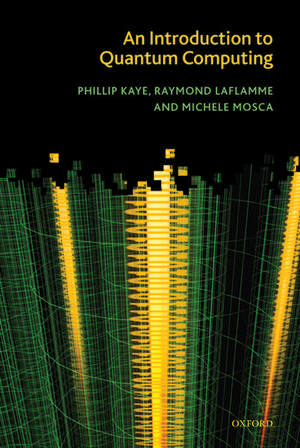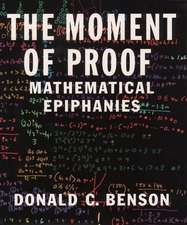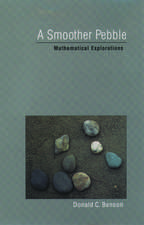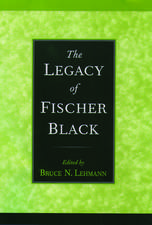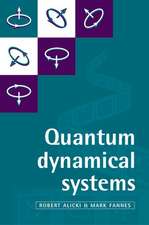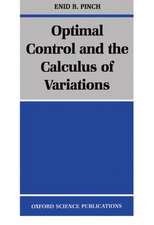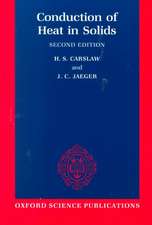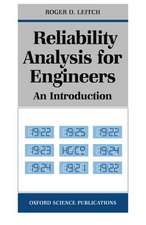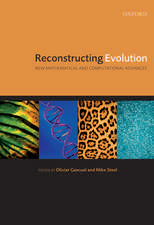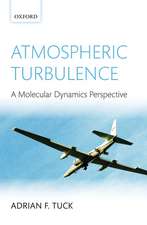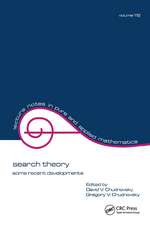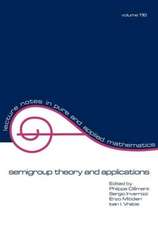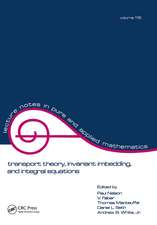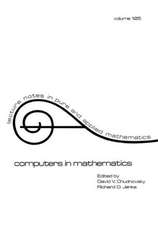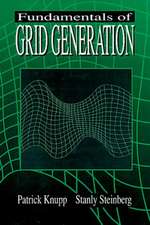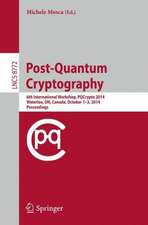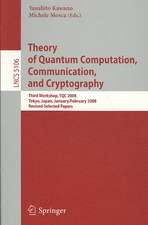An Introduction to Quantum Computing
Autor Phillip Kaye, Raymond Laflamme, Michele Moscaen Limba Engleză Hardback – 16 noi 2006
| Toate formatele și edițiile | Preț | Express |
|---|---|---|
| Paperback (1) | 381.71 lei 31-37 zile | +70.29 lei 7-13 zile |
| OUP OXFORD – 16 noi 2006 | 381.71 lei 31-37 zile | +70.29 lei 7-13 zile |
| Hardback (1) | 1168.90 lei 31-37 zile | |
| OUP OXFORD – 16 noi 2006 | 1168.90 lei 31-37 zile |
Preț: 1168.90 lei
Preț vechi: 1666.67 lei
-30% Nou
Puncte Express: 1753
Preț estimativ în valută:
223.69€ • 232.21$ • 186.53£
223.69€ • 232.21$ • 186.53£
Carte tipărită la comandă
Livrare economică 11-17 martie
Preluare comenzi: 021 569.72.76
Specificații
ISBN-13: 9780198570004
ISBN-10: 0198570007
Pagini: 288
Ilustrații: numerous line drawings
Dimensiuni: 162 x 240 x 20 mm
Greutate: 0.55 kg
Editura: OUP OXFORD
Colecția OUP Oxford
Locul publicării:Oxford, United Kingdom
ISBN-10: 0198570007
Pagini: 288
Ilustrații: numerous line drawings
Dimensiuni: 162 x 240 x 20 mm
Greutate: 0.55 kg
Editura: OUP OXFORD
Colecția OUP Oxford
Locul publicării:Oxford, United Kingdom
Recenzii
The book is spiced with Try Its, brief exercises that engage the readers in problem solving (both with and without mathematics) and help them digest the many counter-intuitive quantum information science and quantum computing concepts.
Notă biografică
Phillip Ronald Kaye was born in Toronto, and raised in Waterloo, Ontario, Canada. In 1995 Phil was accepted to the Faculty of Engineering at the University of Waterloo with an entrance scholarship. He completed his undergraduate degree in Systems Design Engineering in 2000 and was awarded the George Dufault Medal for Excellence in Communication at his convocation. During the Summer months following his undergraduate convocation, Phil worked as an encryption software developer at Research in Motion (RIM), where he continued to work on a part-time basis during his graduate studies. Phil did his Master's degree in the department of Combinatorics and Optimization at Waterloo. His Master's thesis was entitled 'Quantum Networks for Concentrating Entanglement, and a Logical Characterization of the Computational Complexity Class BPP.' Phil is currently a PhD student at the School of Computer Science at the University of Waterloo.Raymond Laflamme completed his undergraduate studies in Physics at Université Laval. He then moved to Cambridge, UK, where he took Part III of the Mathematical Tripos before doing a PhD in the Department of Applied Mathematics and Theoretical Physics (DAMTP) under the direction of Professor Stephen Hawking. Following posts at UBC, Cambridge and Los Alamos National Laboratory, Raymond moved to the University of Waterloo in 2001 as a Canada Research Chair in Quantum Information. Raymond is a recipient of Ontario's Premier Research Award and a Director of the Quantum Information program of the Canadian Institute for Advanced Research. He was named the Ivey Foundation Fellow of the Canadian Institute for Advanced Research (CIAR) in September of 2005.Michele Mosca obtained a DPhil in quantum computer algorithms in 1999 at the University of Oxford. Since then he has been a faculty member in Mathematics at St. Jerome's University and in the Combinatorics and Optimization department of the Faculty of Mathematics, University of Waterloo, and a member of the Centre for Applied Cryptographic Research. He holds a Premier's Research Excellence Award (2000-2005), is the Canada Research Chair in Quantum Computation (since January 2002), and is a CIAR scholar (since September 2003). He is a co-founder and the Deputy Director of the Institute for Quantum Computing, and a founding member of the Perimeter Institute for Theoretical Physics.
